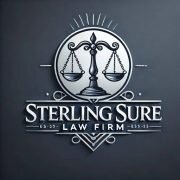Best Car Accident Lawyers in Owerri
Share your needs with us, get contacted by law firms.
Free. Takes 2 min.
List of the best lawyers in Owerri, Nigeria
About Car Accident Law in Owerri, Nigeria
Car accidents can happen to anyone, and they often result in physical injuries, property damage, and emotional distress. Understanding the car accident laws in Owerri, Nigeria is crucial for protecting your rights and seeking the compensation you deserve.
Why You May Need a Lawyer
While not all car accident cases require legal assistance, there are situations where having a lawyer can greatly benefit you. Some common situations include:
- When the accident results in severe injuries or fatalities
- When there is a dispute over who was at fault
- When the insurance company fails to provide a fair settlement
- When the accident involves a commercial vehicle or government entity
- When you are unsure about your rights and legal options
Local Laws Overview
In Owerri, Nigeria, the laws related to car accidents are primarily governed by the Road Traffic Act, Motor Vehicle (Third Party) Insurance Act, and other relevant statutes. Some key aspects of local laws include:
- Compulsory third-party insurance for all motor vehicles
- Requirement to report accidents to the nearest police station within 24 hours
- Establishment of the Motor Vehicle Accident Fund for compensating victims of car accidents
- Potential criminal charges, such as dangerous driving or negligence causing death
Frequently Asked Questions
1. What should I do immediately after a car accident?
After a car accident, prioritize your safety and the safety of others. Check for injuries and seek medical help if necessary. Move your vehicle to a safe location and contact the police. Exchange contact and insurance information with the other party involved. It is also advisable to gather evidence, take photographs of the scene, and collect witness statements, if possible.
2. How long do I have to file a car accident claim in Owerri?
In Owerri, the statute of limitations for filing a car accident claim is generally three years from the date of the accident. It is important to consult with a lawyer as soon as possible to ensure you meet all necessary deadlines.
3. How is fault determined in car accident cases?
Fault in car accident cases is often determined by gathering evidence, such as police reports, witness statements, photographs, and expert opinions. The court considers factors like driver negligence, traffic violations, and the duty of care owed to other road users.
4. Can I still recover compensation if I was partially at fault for the accident?
Owerri follows the principle of comparative negligence. This means that even if you were partially at fault for the accident, you may still be able to recover compensation. However, the amount you can recover may be reduced proportionally to your level of fault.
5. How long does a car accident case usually take to resolve?
The duration of a car accident case can vary greatly depending on various factors, including the complexity of the case, the willingness of parties to negotiate, and court caseload. Some cases can be resolved within a few months, while others may take years to reach a resolution.
Additional Resources
If you require further information or legal assistance regarding car accidents in Owerri, Nigeria, consider reaching out to these resources:
- Owerri State Ministry of Justice
- Nigerian Bar Association - Owerri Branch
- Owerri Road Safety Commission
Next Steps
If you need legal assistance for a car accident case in Owerri, Nigeria, it is advisable to consult with a reputable lawyer specializing in personal injury and car accident law. They can provide expert advice tailored to your specific situation and guide you through the legal process to ensure your rights are protected.
Lawzana helps you find the best lawyers and law firms in Owerri through a curated and pre-screened list of qualified legal professionals. Our platform offers rankings and detailed profiles of attorneys and law firms, allowing you to compare based on practice areas, including Car Accident, experience, and client feedback.
Each profile includes a description of the firm's areas of practice, client reviews, team members and partners, year of establishment, spoken languages, office locations, contact information, social media presence, and any published articles or resources. Most firms on our platform speak English and are experienced in both local and international legal matters.
Get a quote from top-rated law firms in Owerri, Nigeria — quickly, securely, and without unnecessary hassle.
Disclaimer:
The information provided on this page is for general informational purposes only and does not constitute legal advice. While we strive to ensure the accuracy and relevance of the content, legal information may change over time, and interpretations of the law can vary. You should always consult with a qualified legal professional for advice specific to your situation.
We disclaim all liability for actions taken or not taken based on the content of this page. If you believe any information is incorrect or outdated, please contact us, and we will review and update it where appropriate.









